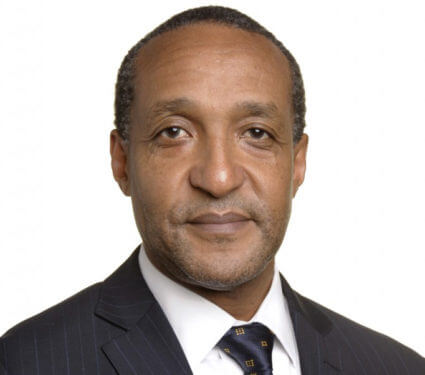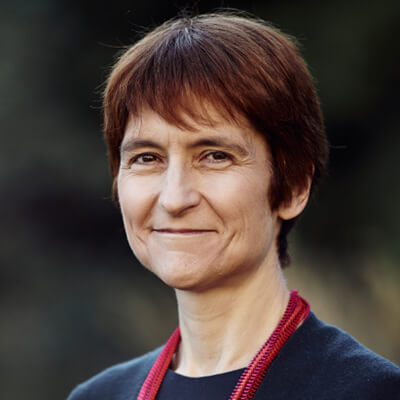
The seventh annual Multi-Stakeholder Forum on Science, Technology and Innovation for the SDGs (STI Forum), hosted by UNDESA, was held from 5 to 6 May 2022, with side events taking place during 4-6 May. The theme for this year’s forum is “Science, technology and innovation for building back better from the coronavirus disease (COVID-19) while advancing the full implementation of the 2030 Agenda for Sustainable Development”
The ISC and INGSA have co-organized a Side Event to the Forum, in the form of a virtual roundtable panel discussion. This roundtable will discuss lessons-learnt from the practice of providing science advice to national governments in the context of the pandemic. It will make suggestions on how to improve cooperative actions for a better science-policy interface among governments, the UN system, stakeholders including the scientific community, and the private sector. Finally, it will outline the implications of more responsive science advice mechanisms on public trust in science and technology.
Watch the recording:
The Covid 19-pandemic has brought the science-policy interface into sharper focus than ever before. The experiences over the past 27 months both illustrate the value of formal science advisory mechanisms and raise important questions. This special session will discuss these both from the perspective of the ongoing pandemic, lessons for other crises such as climate change and in the more general aspects of informed policy making. While the focus will be on national policy advice there are also implications for scientific input into the multilateral system.
Science advice is never a linear process from evidence to policy: it requires reciprocal iteration between the policy and the science communities. Science advice has two main components: evidence synthesis and evidence brokerage. The former is the need to review evidence from all the disciplines relevant to an issue to summarize what is known and the uncertainties. Brokerage is the matter of appropriate communication of that synthesis to the policy maker in a way that is understood. Brokerage is also the process of ensuring that the evidence provided meets the needs of the policy maker. Central to brokerage is clearly describing what is known and the underpinning assumptions, and importantly, what is not known – this is particularly important in crises when there will be many uncertainties early on and this certainly was the case in the pandemic. Science advice seeks to provide information and an analysis of the options for a policy issue but the choice of options by the policy community is dependent on many non-scientific factors including fiscal, political, public opinion, political and diplomatic considerations. Thus, science advice cannot be separated fully from science communication to society.
In both emergencies and non-crisis situations, performing effective science advice requires a trusted interface between the policy community and the science community, generally in the form of an established brokerage mechanism. Ultimately good science advice is thus dependent on an ecosystem of knowledge generators such as universities and government laboratories, knowledge synthesizers such as academies, think tanks and research institutes, and effective processes for brokerage via science advisors, sometimes academies and advisory boards.
A core part of science advice is risk assessment and communication. There is an urgent need to understand how to ensure that assessments of major and even existential risks such as pandemics and climate change lead to more timely attention from the policy community. We must learn from the pandemic so that we do not fail to do better in the next crises.
There are also important learnings for how science and policy work in concert in the multilateral space. The scientific inputs to global policy should follow the same principles of synthesis – ensuring appropriate plurality by discipline, geography, and development state – and brokerage. The challenge of plurality extends to where multiple agencies have a lens on the same issue and here mechanisms for integration are critical.
Principles and Structure of Science Advice: An outline
An ISC-INGSA Occasional Paper on the development of a training module on science advice and diplomacy for the ISC community and Members.

Yonglong Lu, Moderator
Chair Professor of Xiamen University, and Distinguished Professor of the Chinese Academy of Sciences, China
Peter Gluckman, Presenter and Panelist
ISC President and former Science Advisor to the Prime Minister of New Zealand

Alexandre Fasel, Panelist
Ambassador, Special Representative for Science Diplomacy, Switzerland

Amb. Macharia Kamau, CBS, Panelist
Principal Secretary to the Minister of Foreign Affairs, Kenya

Maria Esteli Jarquin-Solis, Panelist
Deputy Director of International Affairs, University of Costa Rica

Claire Craig, Panelist
Vice President of INGSA, Queens College, Oxford, UK
(Times refer to EDT, New York Time)
Start times: London: 13:45 | Paris 14:45 | Nairobi: 15:45 | Delhi 18:15 | New York 8:45
| 8:45 | Moderator’s opening by Yonglong Lu |
| 8:50 | Opening presentation by ISC President, Peter Gluckman |
| 9:05 | Panelists presentations by Alexander Fasel, Macharia Kamau, Maria Esteli Jarquin-Solis, Claire Craig |
| 9:25 | Interactive Dialogue and Q&A |
| 9:40 | Closing remarks |
Image by Conny Schneider on Unsplash